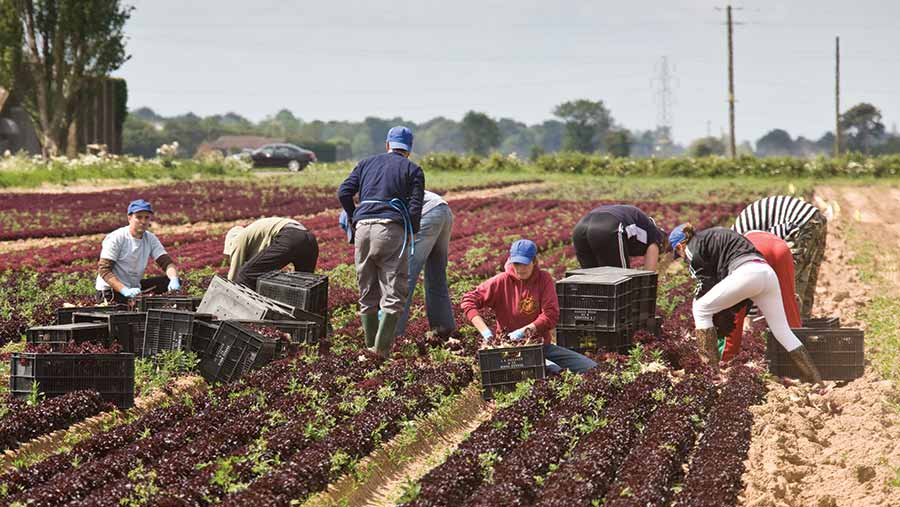NFU issues warning on potential labour shortage
 ©Tim Scrivener
©Tim Scrivener Fruit and veg crops will be left rotting in the ground next harvest unless action is taken to deal with the migrant labour shortage in the UK, according to NFU deputy president Minette Batters.
Ms Batters issued the chilling warning as she delivered her verdict on the labour shortage facing the agricultural industry, especially its horticulture sector.
Speaking at a Westminster Food and Nutrition forum on Thursday (1 December), Ms Batters said the horticulture sector employs 85,000 seasonal workers – people coming from Europe on work permits mainly for the UK harvest period.
See also: Migrant farmworkers shun UK as sterling tumbles
But by 2020, the NFU has predicted, demand for seasonal workers needed to pick the UK’s fruit and veg crops – such as strawberries, asparagus and flowers – will rise to 95,000.
Following the abolition of the Seasonal Agricultural Workers’ Scheme (Saws), almost half of UK fruit and veg companies reported difficulties attracting workers last year, according to an NFU survey.
The uncertainty following the EU referendum vote for Brexit was making EU workers feeling less welcome, and the drop in the value of sterling meant workers coming here were earning less money.
‘Red alert’ on labour
Ms Batters said: “This is absolutely on red alert. This sector is in shock. Unless we can sort it out, we will have British fruit and veg rotting in the fields next year.”
The NFU is calling on the government to replace Saws with a visa-based global seasonal agricultural workers’ scheme. “We are asking government for a global, seasonal agricultural workers scheme in order to replace the shortfall out of Europe,” Ms Batters said.
She added that fruit and veg production had witnessed a “huge success story” in the UK and consumers now took it for granted that they would have an abundant supply of home-produced food.
It is a “fantastic achievement” that the strawberry growing season in the UK now stretches from March to November, she said.
“Even if we hadn’t had a referendum, we would still be going to government saying there are not enough people wanting to come to the UK to pick our crops.”
Single market access
On trade, Ms Batters said it was vital for UK agriculture that it continues to have full, unrestricted access to the EU single market after the country leaves the European Union.
Otherwise, World Trade Organization (WTO) rules would have to apply to our agriculture sector, which would mean that UK exports would be subject to import tariffs when entering the EU.
“That means our lamb exports will be trading with a 51% tariff,” Ms Batters said. “That will price British lamb out of the marketplace.”
Earlier this week, more than 70 agri-food companies signed a letter to the prime minister, explaining that tariff-free access to the single market and access to overseas labour were vital for UK food and farming to flourish post-Brexit.
The UK food and drink sector employs 3.9 million people and is worth £108bn to the economy each year.
